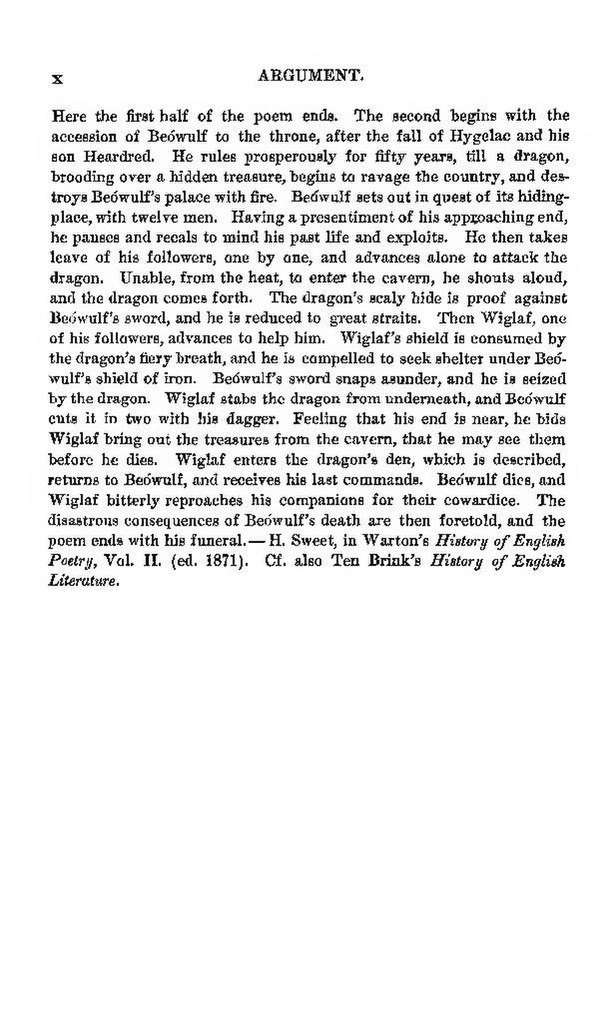Here the first half of the poem ends. The second begins with the accession of Beówulf to the throne, after the fall of Hygelac and his son Heardred. He rules prosperously for fifty years, till a dragon, brooding over a hidden treasure, begins to ravage the country, and destroys Beówulf’s palace with fire. Beówulf sets out in quest of its hiding-place, with twelve men, Having a presentiment of his approaching end, he pauses and recals to mind his past life and exploits. He then takes leave of his followers, one by one, and advances alone to attack the dragon. Unable, from the heat, to enter the cavern, he shouts aloud, and the dragon comes forth. The dragon's scaly hide is proof against Beówulf's sword, and he is reduced to great straits. Then Wiglaf, one of his followers, advances to help him. Wiglaf’s shield is consumed by the dragon’s fiery breath, and he is compelled to seek shelter under Beówulf’s shield of iron. Beówulf’s sword snaps asunder, and he is seized by the dragon. Wiglaf stabs the dragon from underneath, and Beówulf cuts it in two with his dagger. Feeling that his end is near, he bids Wiglaf bring out the treasures from the cavern, that he may see them before he dies. Wiglaf enters the dragon’s den, which is described, returns to Beówulf, and receives his last commands. Beówulf dies, and Wiglaf bitterly reproaches his companians for their cowardice. The disastrous consequences of Beówulf’s death are then foretold, and the poem ends with his funeral.— H. Sweet, in Warton’s History of English Poetry, Vol. II. (ed. 1871). Cf. also Ten Brink’s History of English Literature.
